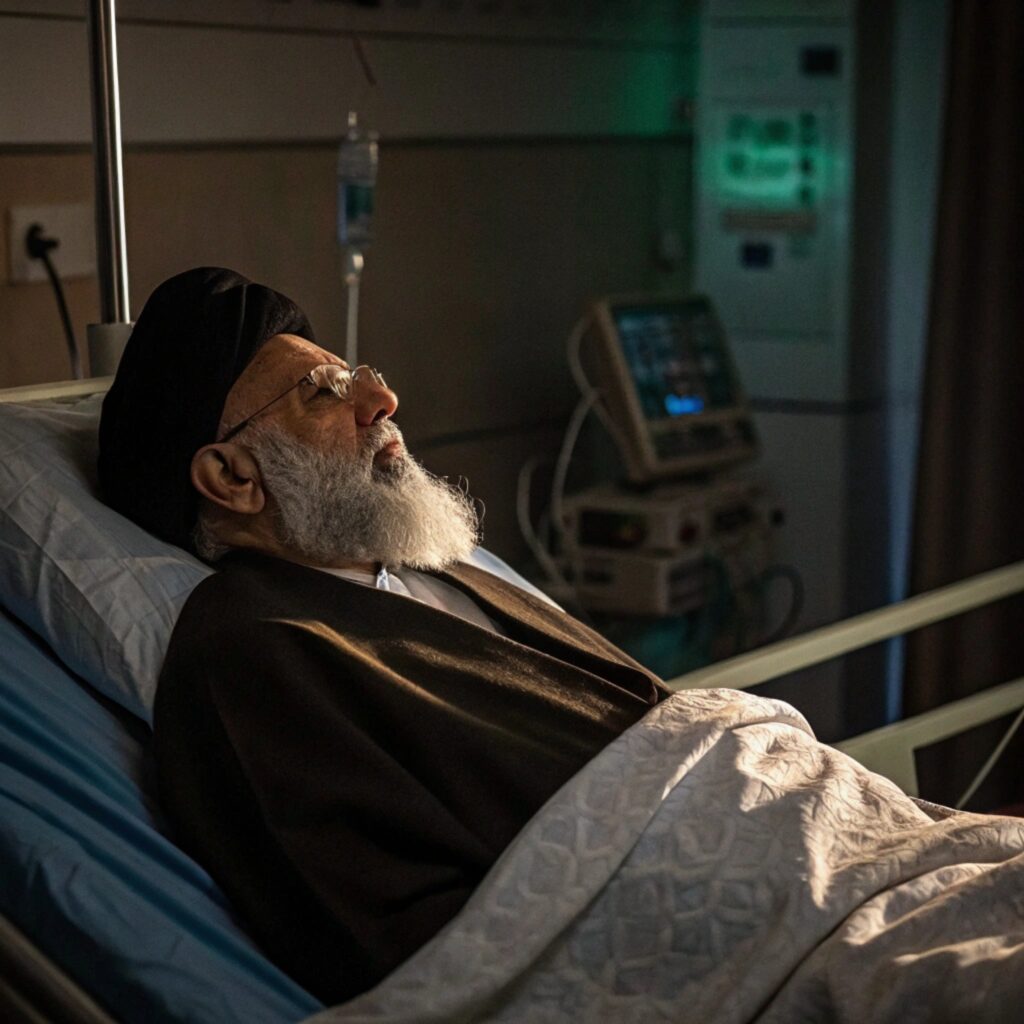Reports claimed that Ayatollah Ali Khamenei was in a coma, with his son, Mojtaba, to be his successor. While Mojtaba wields significant power, his leadership is divisive, with support for his policies and criticism over limited political freedoms.
Reporters claimed about the health of 85-year-old Ayalloah Ali Khamenei, Iran’s Supreme Leader in a coma. There’s yet another report circulating with whispers that he has secretly and quietly selected his son, Mojtaba Khamenei, who is 55, to succeed him. These claims started after The New York Times reported in October that Khamenei was seriously unwell.
To address these rumors, Khamenei’s office shared a picture on his X account (which used to be called Twitter). In the photo, he meets Mojtaba Amani, Iran’s Ambassador to Lebanon. The caption said this meeting happened during Khamenei’s regular daily schedule, which seems like a way to show that he is okay.

Ayatollah Ali Khamenei Successor Mojtaba Khamenei?
Ayatollah Ali Khamenei’s potential successor Mojtaba Khamenei is 55 years of age and the son of Iran’s current Supreme Leader, Ayatollah Ali Khamenei. Mojtaba has become an important leader both in the religious and political spheres of Iran.
To many, he is the obvious successor to the Supreme Leader role that his father now occupies. While Mojtaba is nowhere near as visible as his father, he exerts much power inside Iran’s government, military, and religious apparatus.
Ayatollah Ali Khamenei: Mojtaba Early Life and Education
Ayatollah Ali Khamenei’s potential successor Mojtaba Khamenei was born in 1969 in Iran. Mojtaba belongs to a politically and religiously engaged family. His father, Ayatollah Ali Khamenei, is already an influential leader in Iran, and the family of Khameneis took a significant part in the Islamic Revolution of 1979.
Mojtaba received a traditional religious education. Mojtaba studied Islamic law and theology at the Hawza, a religious school in Qom. The city of Qom is the center of Shia learning in Iran. He became a cleric like his father but did not make the same types of public appearances. Mojtaba also worked on developing political skills because he was involved in different political and military groups connected to the Iranian government.
Coming from this powerful family background, Mojtaba’s education was both religious and political which made him prepared enough to play a vital role in making the future of Iran.
A huge billboard of Ayatollah Ali Khamenei was set on fire by crowds fed up with Islamic tyranny. pic.twitter.com/H0oahyakRw
— Forza İsrail 🇮🇱🎗️ (@forza_israil) November 16, 2024
Ayatollah Ali Khamenei: Mojtaba’s Role in 2009 Elections
Ayatollah Ali Khamenei’s potential successor Mojtaba Khamenei was a huge debate in Iran’s Presidential elections in 2009. He caused much controversy and protest among people. Most people believed Mahmoud Ahmadinejad won through voting rigging in favor of himself. The result led to the well-known Green Movement protests. Mojtaba was aligned with the father’s political group that campaigned for Ahmadinejad, as well as supporting the election process. Although Mojtaba did not have a public role like his father, he had a strong influence among religious and military leaders. His involvement in the election helped strengthen his position within Iran’s ruling group and made his reputation as a key political figure in Iran’s leadership and military circles.
Ayatollah Ali Khamenei: The Next Supreme Leader
Ayatollah Ali Khamenei’s potential successor Mojtaba Khamenei is often seen as a likely candidate to become the next Supreme Leader of Iran after his father, Ayatollah Khamenei. His nearness to the political and military leaders of Iran, among whom is the IRGC, makes him better suited for the next Supreme Leader of that country if only by his educational background in religious schools.

While Mojtaba isn’t as popular among the people as his father, his impact from behind the scenes could make him potentially continue his father’s tough policies. However, there is no guarantee he will be the leader; the Supreme Leader is elected by a gathering of senior clerics known as the Assembly of Experts, and his success hinges on whether he enjoys the full backing of such a group.
Ayatollah Ali Khamenei: Public Perception and Criticism
Support:
Ayatollah Ali Khamenei’s potential successor Mojtaba’s supporters see him as a strong leader who can continue his father’s strict policies, which many believe have kept Iran stable. His close relationships with the IRGC and other important political and military figures help him get support from powerful groups. Many also think that his rise could keep the leadership in the same family, as the Khamenei family has been a key part of Iran’s politics since the 1979 Islamic Revolution.
Criticism:
Ayatollah Ali Khamenei’s potential successor Mojtaba Khamenei faced a lot of criticism, especially from reformists and opposition groups. Critics say that if he becomes a leader, he will continue the strict rules that limit freedoms and stop political opposition. He campaigned for Mahmoud Ahmadinejad in the 2009 election, raising many questions over whether he believed in democracy. Mojtaba is less seen in public compared to his father and most influential, which leaves much doubt about his ability to be a leader.
Many people have mixed feelings toward him and do not support him, as he has strong support from Iran’s elite and military; many people oppose him for wanting political reforms with greater freedoms.
Also Read: Israel Iron Beam Laser Defense System: Revolutionizing Aerial Defense